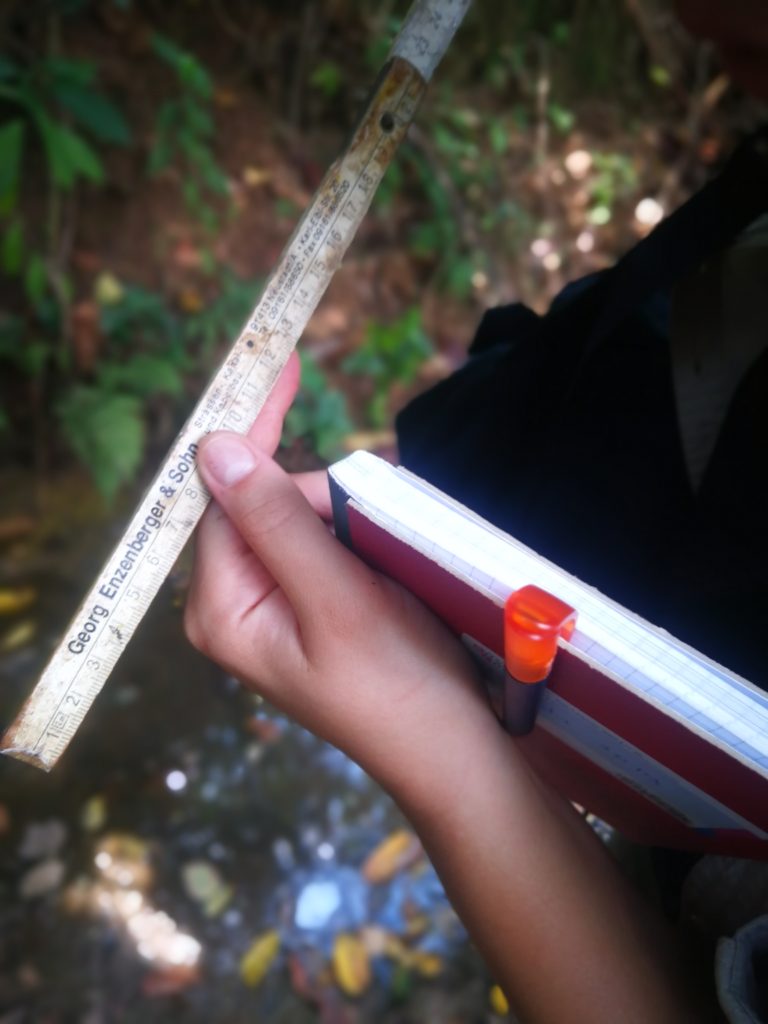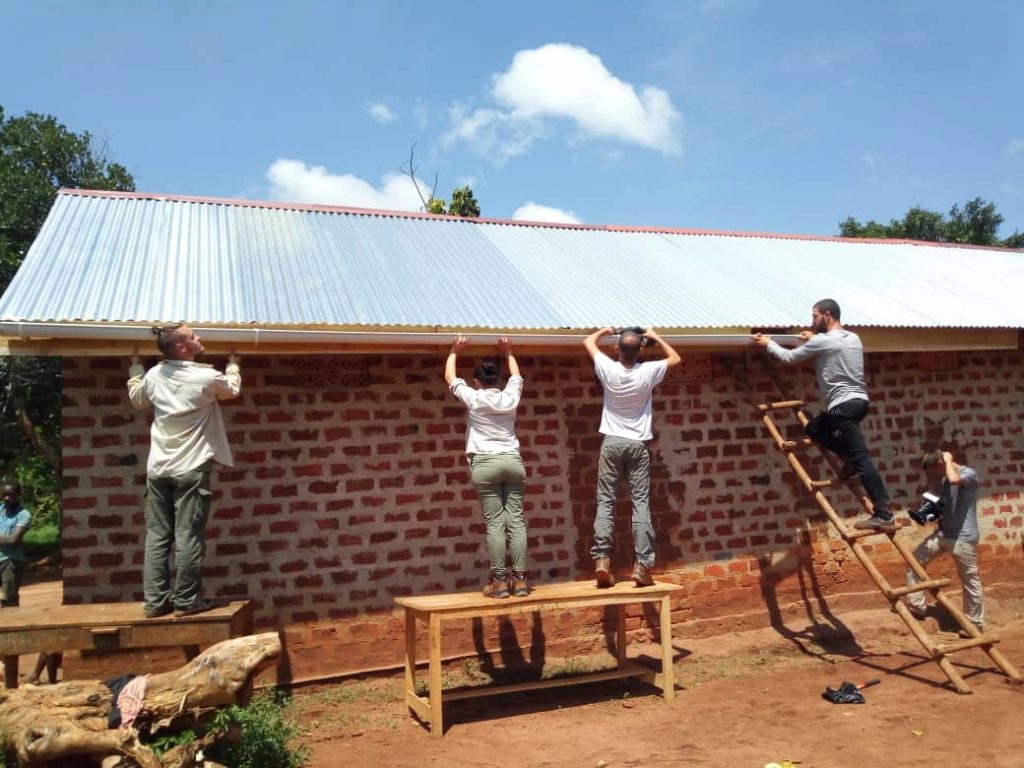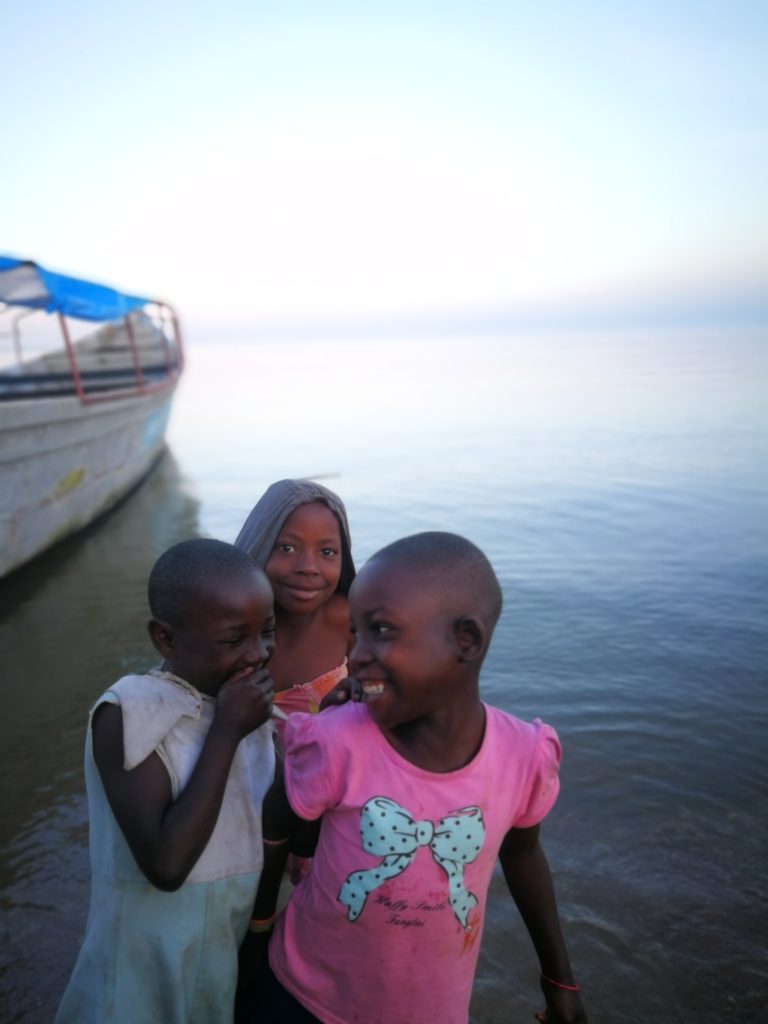Purifying drinking water on the Zinga Islands of Uganda
Our Blueprint Travel Grant program supports employees making service-based trips around the world in partnership with charitable organizations. As they return from their journeys, we’re following their stories through the #AECOMBlueprint blog series.
Thanks to AECOM’s Blueprint Travel Grant, I was able to take part in an outreach project in Uganda — a project near and dear to my heart because I am South African by birth and Ugandan by descent. With five other AECOM employees, I joined the WeDev NPO team to help an orphanage on the remote Zinga Islands collect, analyze and purify drinking water. The orphanage was one of five sites we visited during the service trip.
According to Drop 4 Drop, a global charity dedicated to alleviating the world’s water crisis, “Almost a quarter of people across Uganda do not have access to clean water and over 80 percent do not have adequate sanitation. Using and drinking unsafe water is one of the leading causes of death and disease across Uganda with 4,500 children dying every year due to having no other option but to drink this unsafe water.” This is a critical issue that the people of Uganda are facing.
Our team set out to tackle water sanitation-related issues in the most needy and remote areas of Uganda by using local, simple methods. Our goal was to build systems that could be used continuously and easily by the community. Our professional backgrounds ranged from hydrogeology and environmental technicians to cost, hydraulic and civil engineers. Our understanding of infrastructure, its workings and the associated costs helped us ascertain the best and least expensive solutions to the problems faced in the community. Teaching one another aspects of our jobs helped our collective effort to get as much done in the little time we had.
Over the course of two weeks we traveled by car, boat and even in the back of a small loading truck to five sites that included orphanages, schools and a home. Our group visited and analyzed these sites to create simple solutions for each unique situation. For example, to reduce the walking distance required to fetch water, we installed a pump into a well, set up gutters to collect rain water and added pipes so that water from springs would run into tanks. We also tested the water to ascertain the types of bacteria picked up in water pre- and post-purification using homemade chlorine. We helped provide a community with the resources needed to collect a basic necessity for themselves by:
- Connecting spring water to a tank using a gradient
- Making chlorine from salt with a solar powered battery to clean water from tanks and other water sources
- Connecting a pump to an 11-meter-deep borehole to ease the process of obtaining water

This eye-opening process highlighted the magnitude of challenges Ugandan communities face in accessing clean drinking water. Even if you can access and transport the water, it still needs to be purified in order to avoid contracting cholera and typhoid, which are deadly illnesses that impact residents and surrounding communities.
This experience was inspiring, but seeing my people in Uganda suffering was not easy. I’m fortunate to work for a company that empowers us to make a meaningful impact on people’s lives around the world through these types of projects. The response from the communities in the form of love, appreciation and keenness to learn and participate gave every one of the volunteers the feeling of being home. We call it “eka” in our language. Simple systems and a few hands go a long way, and this principle can be applied in so many areas of our lives.

In a world full of political unrest, social injustice and environmental depletion, this project inspired hope, not just to the people of Uganda, but to our team as well. We can make a difference — no matter how big or small — to the lives of others in the most beautiful way. I walked away from this experience with a new outlook on life and an appreciation for the humble, happy people and children of Uganda.
A massive thank you to Michael Ottensmann and the WeDev NPO team who allowed me to be a part of this wonderful trip.
“Webale Nnyo.”







